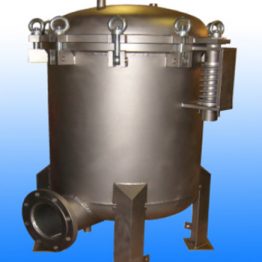Most pressurized substances include gases and liquids and they often have to be transported to different areas where they are needed. Without the right vessels, the pressurized materials could leak and cause more damage not just to the business but surroundings too. The manufacturers, therefore, need to use the perfect materials to create vessels capable of holding pressurized substances. Listed below are some of the appropriate materials one can consider as they analyze the pressure vessel catalogue today to maximize the safety and efficiency of their storage units.
As noted above, the material used to make pressure vessels determine how strong and secure the storage system will be. You cannot, therefore, afford to take any chances since any gaseous sill could lead to combustion accidents. The purpose of this blog was to help relevant businesses in Australian, New Zealand and around the world.
We Breakdown Which Materials Will Work Best For The Manufacturing Of Pressure Vessels
Stainless Steel
Robust design and construction are needed for pressure vessels and what better way to achieve it than the different grades of stainless steel available (304, 316, etc). In fact, stainless steel grades are greatly resistant to a wide range of chemicals and have one of the best corrosion resistance properties. So, whether you plan on using pressure vessels in humid or high temperature conditions, stainless steel material is ideal and economical. Below are three more commonly used materials for pressure vessels.
Titanium
Titanium is gifted with multiple properties that make it suitable for this industrial use. Among the strengths of titanium include its great capability to retain its own structural characteristics. Its resistance to corrosion also makes it very ideal for strong harsh liquids like acids which would have alternatively corroded substitute materials like plastic. It is also easy to maintain titanium especially when it comes to its cleaning and managing lessening time and money taken into maintenance. The material is also non-toxic in its natural form thus encouraging biocompatibility, a very necessary trait for pressure vessels.
Aluminum
Aluminum is also among the perfect materials for use in the manufacture of pressure vessels. Its strongest characteristics are what make it ideal and below are a few of them. Aluminum contains strong tensile strength ranging from 70 to about 700 MPa. They are also very much cheaper to acquire compared to other names in this list, making them very cost-effective for companies with tight budgets. Aluminum also possesses a slightly high coefficient expansion when compared to most of its alternatives today.
Nickel Alloys
Nickel alloys are also a great powerhouse resource for the manufacture of pressure vessels. Their strongest suit includes perfect protection of both the vessel and constituents from thermal expansion. Their oxidation and even carburisation levels are perfect considering their perfect resistance to being corroded. This feature makes it perfect for use in hostile surroundings. Nickel alloys can be relied on as they last longer in comparison to other metal types. This, therefore, gives you quality for your money where good services are guaranteed.

